MAC's Newest Executive Aïda Moudachiro-Rébois Isn't Here for Performative Representation
"Every aspect of the brand needs to be touched by what the world looks like. "
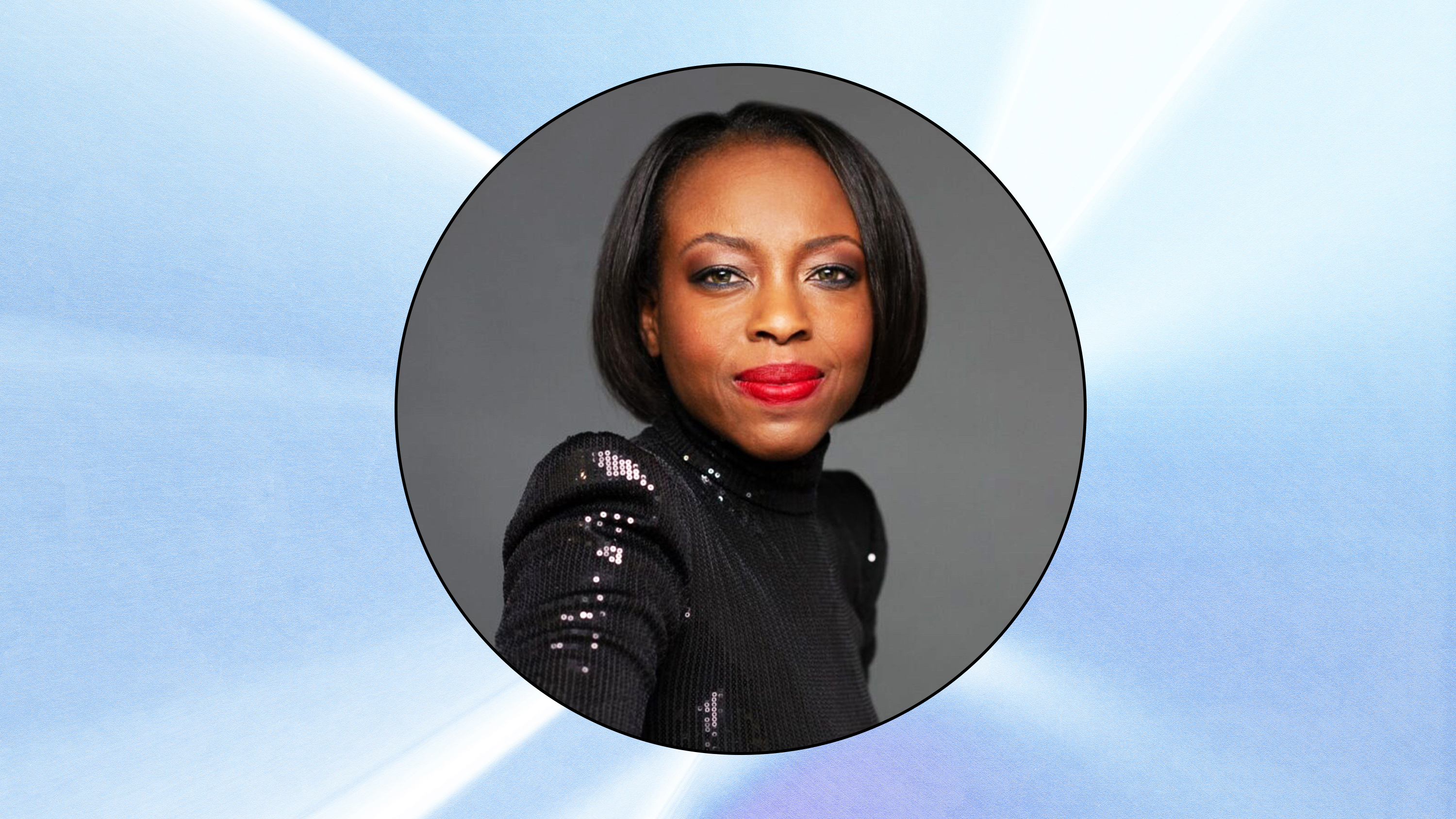

Aïda Moudachiro-Rébois may be MAC's newest C-suite executive, but she's far from a beauty newcomer. After emigrating from her home country of Benin to Paris, France, she set off on a professional track that led her to high-powered jobs at L'Oréal (where she spent over 15 years), Johnson & Johnson, and Revlon. Now, as Senior Vice President, Global General Manager of MAC, she resides in New York City, and admits that even before she started working with MAC, she secretly admired the brand—both personally and professionally.
"As a marketer, I was watching MAC because it grew very fast from being a super small brand to becoming the number one precision makeup brand in the world. And at L'Oréal, we were paying attention," she says. "It was a brand that I've always admired: I've seen them work on me, and I've seen them work on many people who were living outside of what the beauty standard was considered to be at the time. I believe in the brand values. So to be here now at the helm of the brand is kind of full circle."
Moudachiro-Rébois especially values MAC's commitment to diversity because of her own background: As both a Black woman and an immigrant, she is acutely aware of how lacking representation is in the beauty industry and at large in corporate America. Indeed, although Black professionals make up about 13 percent of the American workforce, only about five percent of chief executives are Black. The only African immigrant on MAC's executive team, Moudachiro-Rébois has come to symbolize hope for immigrants and people of color in the business world.
"I don't have the answers, because it's all a personal journey," she confesses, "but I'm happy to share my journey and a little bit of what my struggle or what my energy has been to lead me to this."
Moudachiro-Rébois' late February promotion is particularly poignant amid the refugee crisis escalating within the United States, which has sent a fresh wave of xenophobia across mainstream American society. With that in mind, the new executive shed light on her dynamic career, diving head-first into issues of identity, representation, and how to overcome when the odds seem stacked against you.
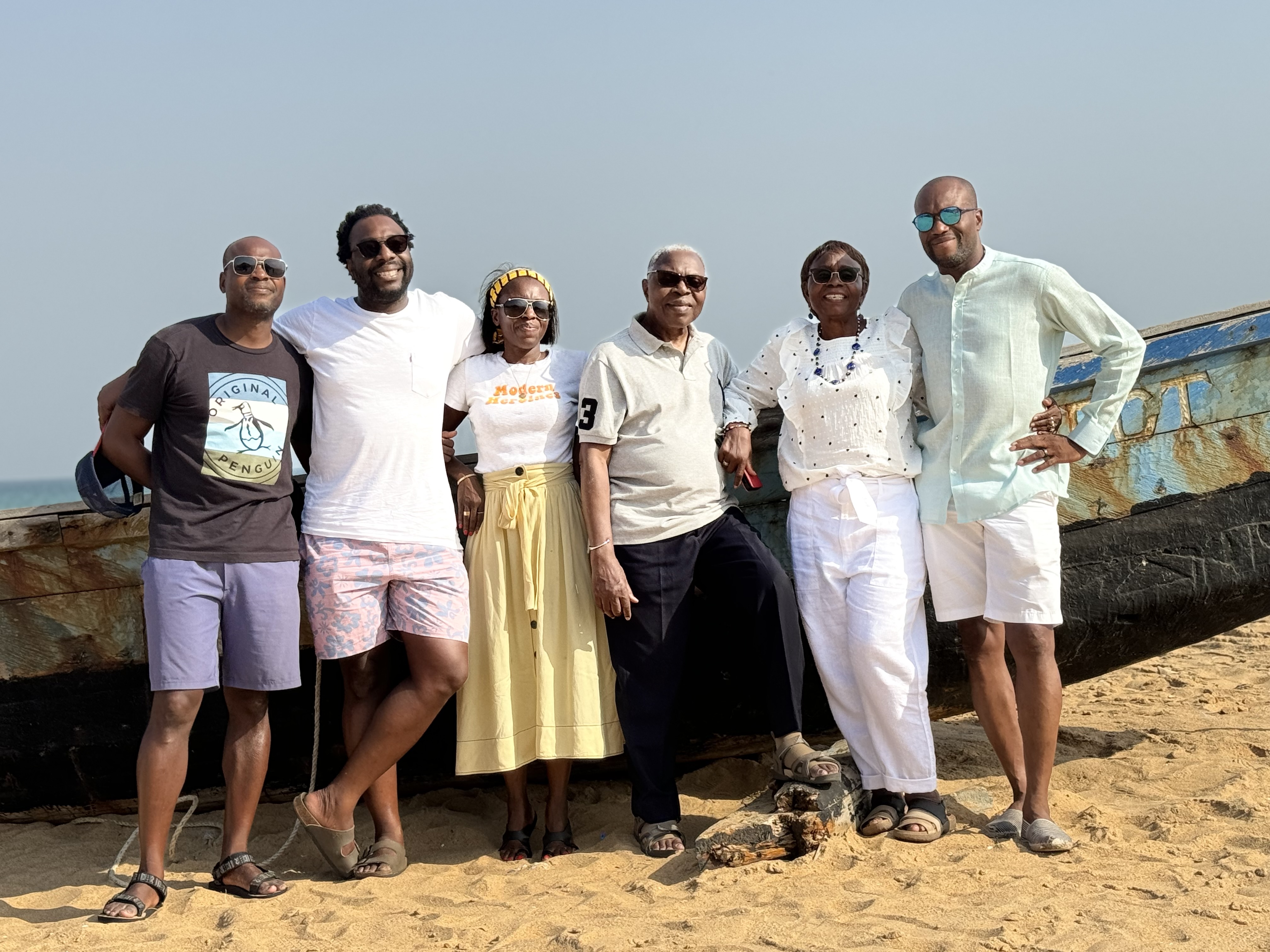
Aïda Moudachiro-Rébois with her family in Benin, where she was born and raised. Today, Moudachiro-Rébois lives in New York, but the rest of her family still lives in the West African country.
On Her New Role
Oh, it’s a dream job. I’m leading the brand, which is a community of 14,000 people. It's a global role, so I have the fortune to work with every region in the world, and we are present in over 90 territories and countries. My team does everything to support the business, from innovation to the way we go to market, to the training of the artists, the artistry, the supply chain, and the finances.
On Her Personal Journey with MAC
MAC was my first makeup brand simply because, at the time, there wasn't any brand I could personally use. Even if I was working with a beauty brand, I couldn't use their shade because there wasn't a shade deep for me. When I was about to get married, I was looking for my makeup look at a department store. I went to the first counter and people were like, "We don't have a shade for you." I got bounced around from counter to counter. I was quite disheveled because it'd been 45 minutes of speaking to people who didn’t have a shade for me, so I didn't feel like a person. The fourth counter in, I was a little bit desperate, and somebody was like, "I'm sorry we don't have what you need, but you can walk to that counter over there and they'll probably have everything you need and more." And that counter was MAC.
Get exclusive access to fashion and beauty trends, hot-off-the-press celebrity news, and more.
The entire system is built to make you feel lesser than other people holding the same citizenship.
On Imposter Syndrome
You learn to live with it. It's important to be aware of it, but it's important to not let it define who you are. You put it aside, do what you have to do, and move on.
I define myself by my own actions and not by the perception that I think people have of me. Sometimes feeling like an imposter is only in your own eyes, and other people don’t actually think that about you. And sometimes, people do make you feel like you're an imposter, but it's okay.
For me, I always had to rebuild my community because I am an immigrant and I travel so much, and every time, I came without a community. So my advice about imposter syndrome is to find your community and speak to the people who can actually tell you the truth and make you feel at home.
On Her Personal Mantra
I created this opportunity for myself, but I also was welcomed by a lot of people who actually made space for me and made sure that I could grow into that space. So now, where I am today, I'll always make space for people, whether they've been here for years or they just came here. Everybody is worth it. Everybody has worth. That's the number one mantra that I live by.
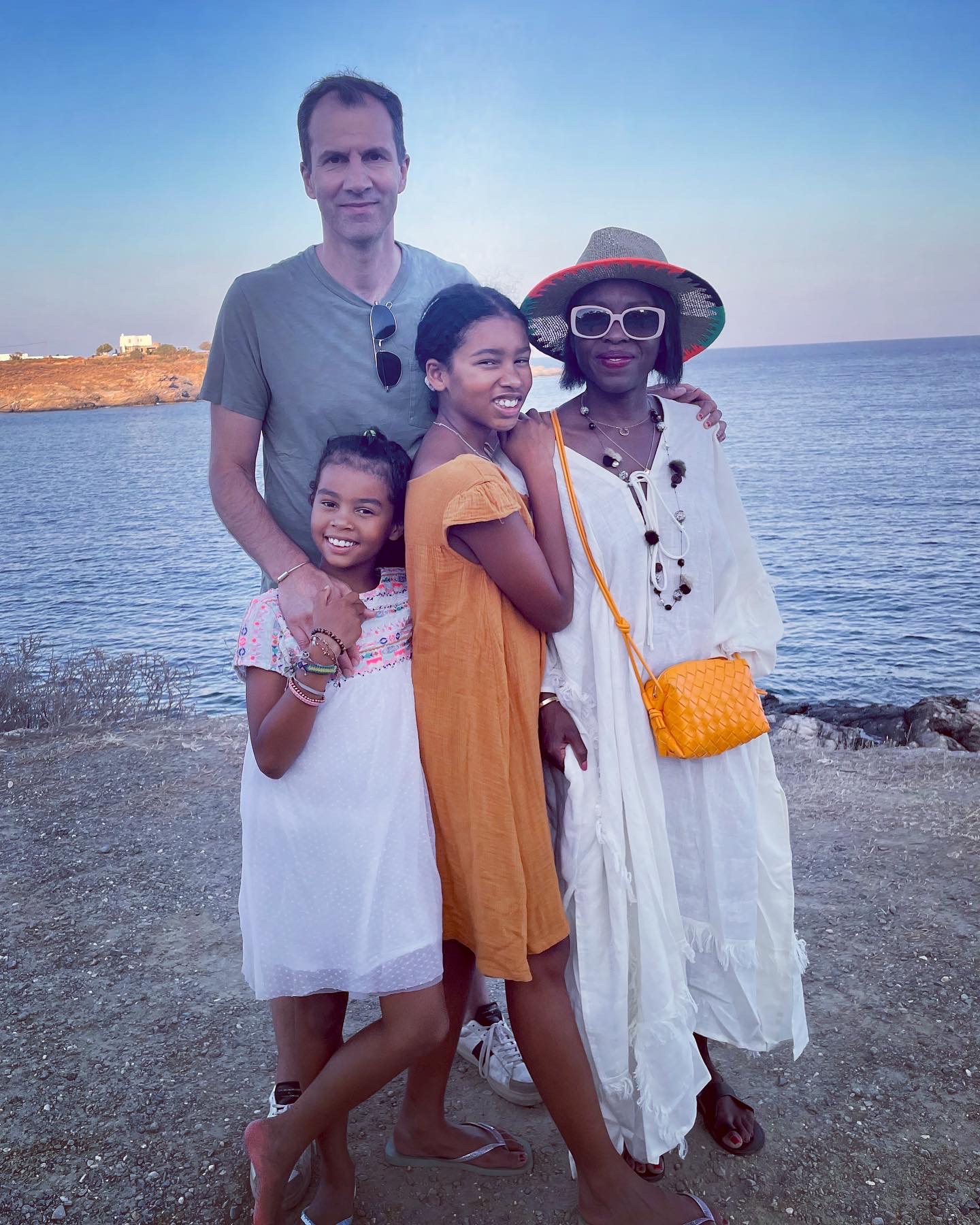
Aïda Moudachiro-Rébois on vacation with her husband and children.
On American Life
I was speaking to university students recently, and a young girl asked me, "How do you get ahead as a Black woman in corporate America?" And I'm African, I'm Black, but I think being African American is also being able to understand the story of this country and what the people before us have been through in this country. So I couldn’t advise the student on this, but I will say that it's super important that when you get to your first job, you don't let the potential of discrimination get in your way. Think about who you are, work as hard as you can be, and demonstrate as much integrity as you can.
My grandmother was from a slave family that came back from Brazil. Benin, where I was born and raised, was one of the main importers of slaves in the world, so we have a very close understanding of slavery. But the difference between us in Benin and African Americans is that in Benin, everybody was Black. I did not grow up as a minority. When I went to Paris, I became a minority, and all of a sudden I was discriminated against. I could have made the choice to say, "You know what? This is not my country. I can go back to my country." When I think about African Americans, this is their country. That's the tough part. That's the difference. The entire system is built to make you feel lesser than other people holding the same citizenship. When I arrived in the US, my first job was working with SoftSheen Carson, which was an African American hair care brand. Right away I learned the nuances of what it is to be a Black person in the U.S. It was very eye-opening. We’re not a monolith.
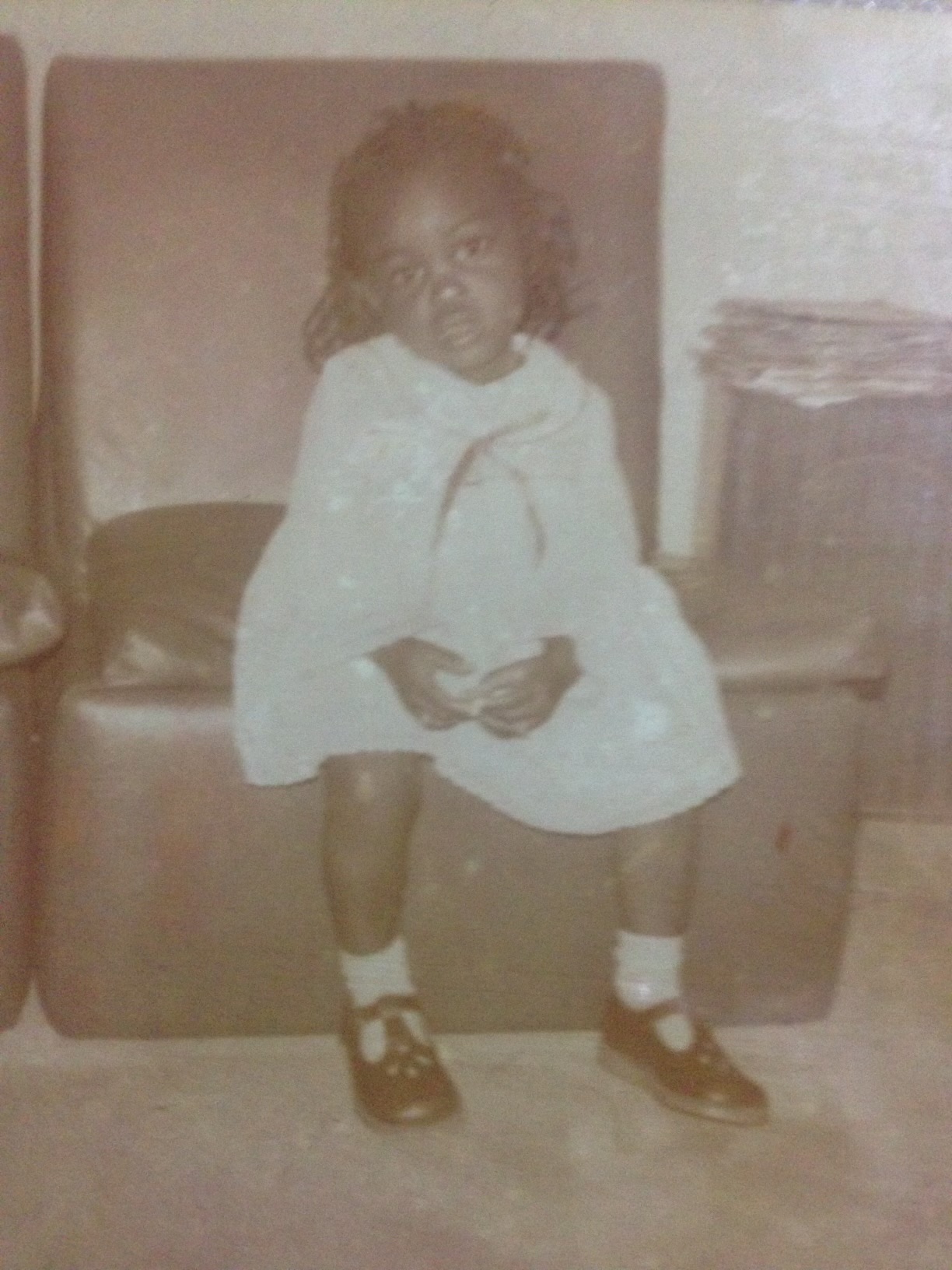
Aïda Moudachiro-Rébois poses as a toddler in Benin, West Africa.
On the Intersection of the Personal and Professional
There is a big migrant crisis right now, so I’m acutely aware that I immigrated by choice. That's a big difference, versus having to immigrate by need. I was born and raised in Africa, and my family lives there, so I go back quite often. I remember all the humanitarian crises: Benin is a small country and we hosted refugees from different crises, like the civil war in Ivory Coast or the civil war in Nigeria. My day-to-day was impacted by those crises—seeing people who had to leave their lives, give up on everything, and start over. Yet when I left Benin, it was by choice. It wasn't a matter of life or death. I know the opportunity that this luck has created for me. My parents sent me from Benin, when I was 14, to boarding school in Paris.
From living in different countries, I learned that everybody has a different perspective, and there is no good or bad perspective. It's just about the context you live. And I think getting into a place where you don't always speak the language or you don't always understand the culture also makes you become very observant. It makes you ask questions and listen with all of your senses. And I think for me, if you transfer those skills to your professional life, it helps you become successful. You may have ideas, but you make sure that your ideas are relevant within context. That's what being an immigrant gave me, and in a global role like mine, that multicultural perspective is priceless.
Everybody is worth it. Everybody has worth. That's the number one mantra that I live by.

Moudachiro-Rébois with Jane Hertzmark Hudis, Group President of Estée Lauder, and Drew Elliott, MAC's Global Creative Director, at MAC's New York Fashion Week kickoff event in February 2024.
On What Drives Her
For me, I think it's always been passion. I have to love what I do. I spend so much time at work that it has to be worth it, especially as a mom. When you are away from your kids and you have to pay somebody to take care of your kids, it needs to be worth it. I don't chase anything—I only chase feeling good about what I do and coming back home with a feeling of being fulfilled or feeling that I've made a difference or that I've made some kind of impact. I look to grow as a human being, as a professional, and to learn something from the team, from our regions, from our competition, and from our partners. That passion is absolutely what has driven my success.
On True Corporate Representation
It's inside-out. It's not just outward. What I mean is, it's not just out of home advertising that has representation. Everybody who touches everything all the way to the outcome. It's formula, it's shades, it's the copywriters. Every aspect of the brand needs to be touched by what the world looks like. It's not just about having a box from light to dark and ticking them all. It's really understanding the undertone, the formulations, or populations who have a climate where oil control is important versus a cold climate that needs something hydrating. For instance, our number one mascara in Mexico is a mascara for downward lashes, and it came from an insight from our makeup artists there.
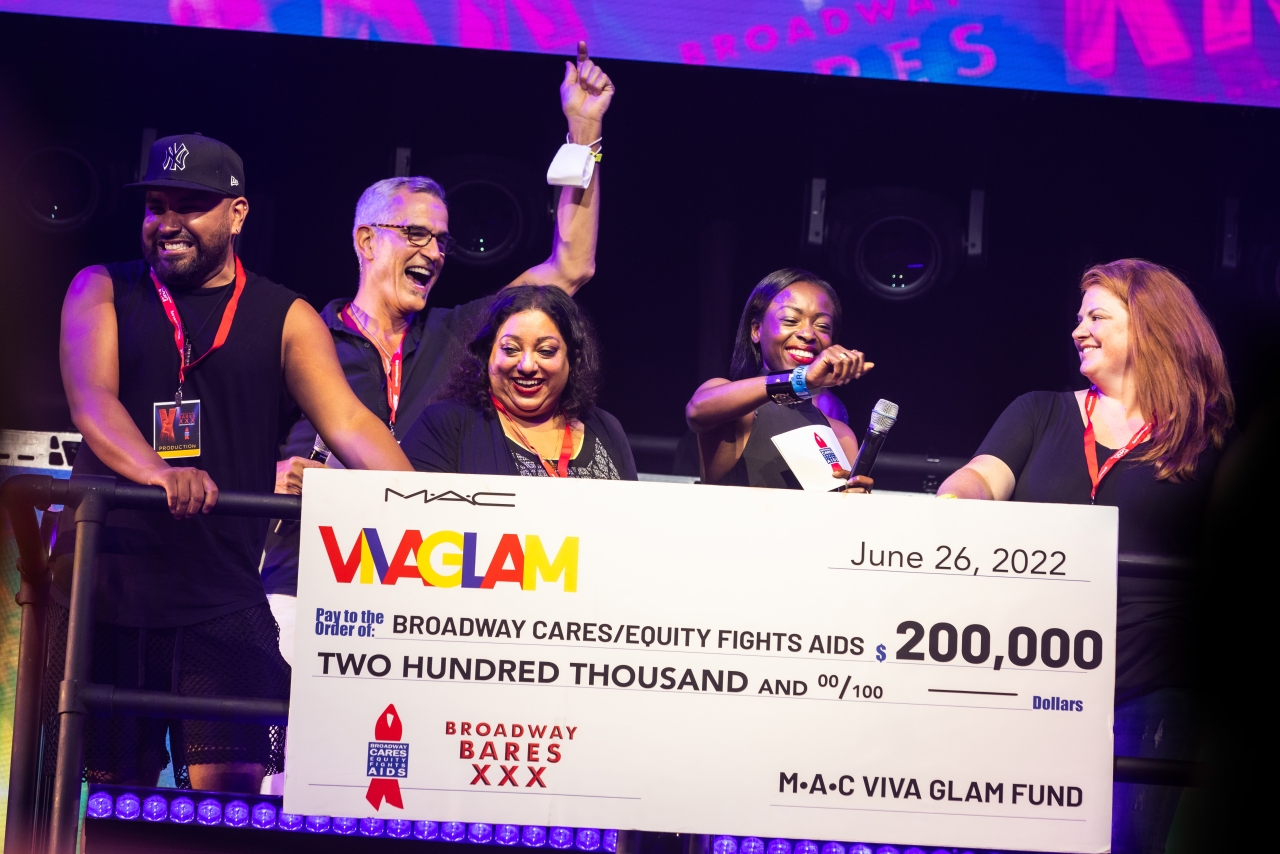
Aïda Moudachiro-Rébois at an event where MAC Viva Glam donated $200,000 to Broadway Cares/ Equity Fights AIDS.
On Her Next Steps
First and foremost, this is the brand’s 40th anniversary. This is a big year for us. So my goal is to really make sure that I write the next 40 years well.
Then, from a personal perspective, sometimes I have to remind myself that I am a woman, a Black woman, a non-American—an immigrant—working in the U.S. And even if for me, everything didn't happen overnight, so I had time to digest it, but I still see myself in people's eyes. A lot of questions I get are, "How did you get there? How do you do it? You have two young kids, so how do you do it all?" I don't underestimate the role that I have in making sure that people understand that everything is possible and that representation matters. I want to make sure that I keep my door open for the girls who have all these questions about how I got here.
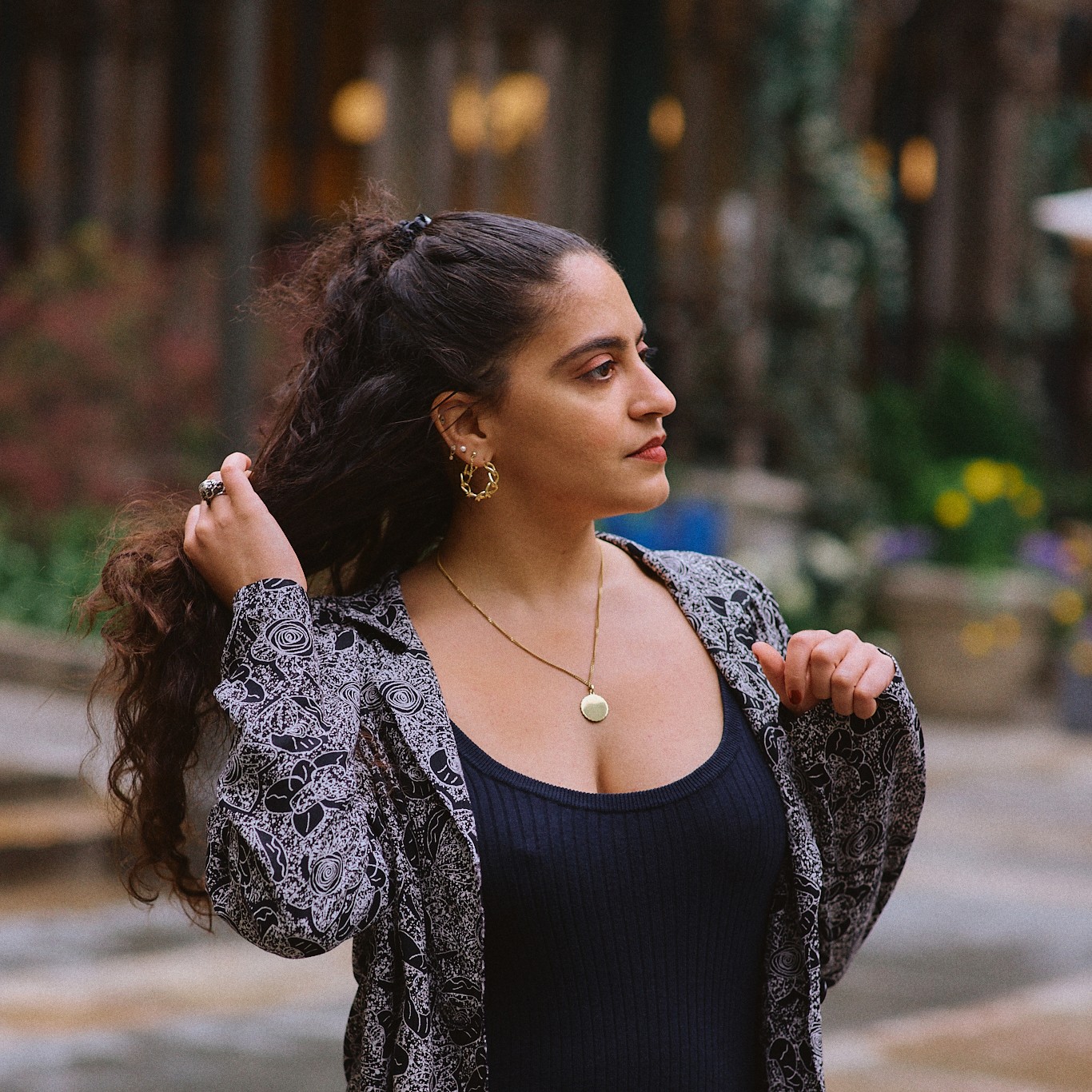
Gabrielle Ulubay is a Beauty Writer at Marie Claire. She has also written about sexual wellness, politics, culture, and fashion at Marie Claire and at publications including The New York Times, HuffPost Personal, Bustle, Alma, Muskrat Magazine, O'Bheal, and elsewhere. Her personal essay in The New York Times' Modern Love column kickstarted her professional writing career in 2018, and that piece has since been printed in the 2019 revised edition of the Modern Love book. Having studied history, international relations, and film, she has made films on politics and gender equity in addition to writing about cinema for Film Ireland, University College Cork, and on her personal blog, gabrielleulubay.medium.com. Before working with Marie Claire, Gabrielle worked in local government, higher education, and sales, and has resided in four countries and counting. She has worked extensively in the e-commerce and sales spaces since 2020, and spent two years at Drizly, where she developed an expertise in finding the best, highest quality goods and experiences money can buy.
Deeply political, she believes that skincare, haircare, and sexual wellness are central tenets to one's overall health and fights for them to be taken seriously, especially for people of color. She also loves studying makeup as a means of artistic expression, drawing on her experience as an artist in her analysis of beauty trends. She's based in New York City, where she can be found watching movies or running her art business when she isn't writing. Find her on Twitter at @GabrielleUlubay or on Instagram at @gabrielle.ulubay, or follow her art at @suburban.graffiti.art